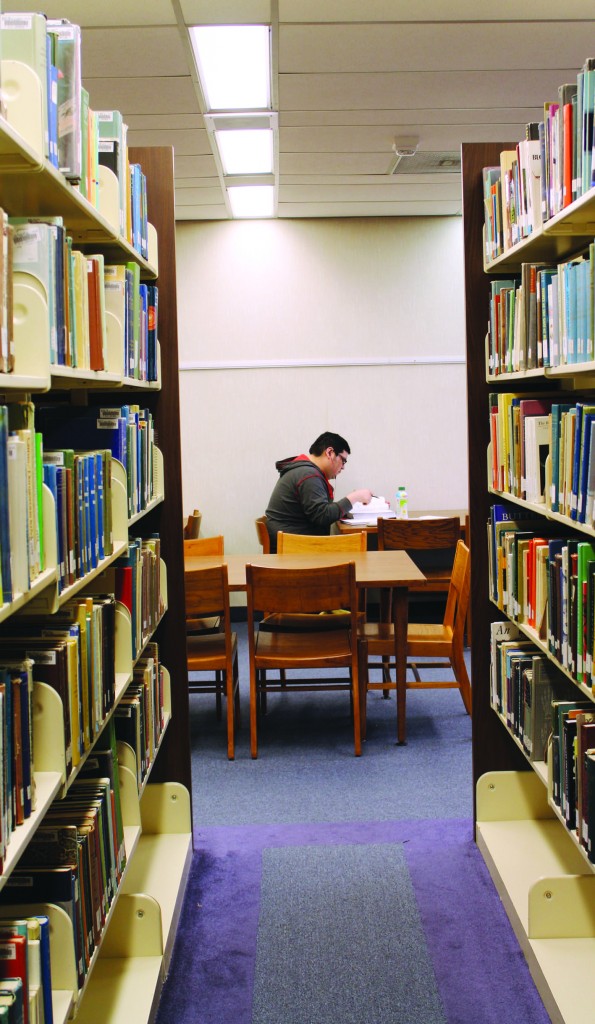 Avoid cramming,
Avoid cramming,
but mnemonic
devices can help
Kira Hays / Associate editor
As finals week quickly approaches, students are gearing up for all-nighters and study groups. But the big questions still stands — what or how is the best way to study? Here are some ways to help you get through the dreaded finals week.
One main thing is a majority of students, regardless of age, wait until the last minute to study for an exam. We’re all guilty of it. If you’ve found yourself in this situation, here are some tips to help you out.
The first is to note the important concepts. Get all of your notes out and highlight or write on a separate sheet of paper the major points. Next, study effectively. Because you’re cramming, you don’t have time to read the entire government book, but you can narrow down what will likely be covered and find ways to best focus on these concepts. Identify the key topics, look at the beginnings and ends of textbook chapters. The beginning identifies what will be covered in the chapter and the end will summarize key points, and contemplate essay questions.
Eliminate as many potential distractions as possible. Turn off your cellphone, or at least silence it, and try to study without using a computer, if possible. If you do need to study with a computer, disable the Internet temporarily. Facebook will be there when you’re done studying, I promise.
Another way to help with the cramming process is making note cards. Not only are they great for running through the subject, but when you’re making them, you are going over the information as you write down all the information. It’s easier to test yourself with note cards than with a long sheet of paper where you can just glance down and see the answer.
If those methods aren’t working for you, try memorization strategies. Develop a mnemonic device. The words mnemonic device mean “memory device.” It is used to trigger your memory by using a set of letters that each mean something different.
Reading aloud also helps with verbal memorization and is often a better way to learn in a hurry than reading to yourself.
Taking frequent, short breaks will help you stay alert and will prevent you from getting burnt out. It is suggested that when studying, take a 10-minute break for every 50 minutes of work.
Also, when studying, chew a piece of gum then on the day of the test, chew the same flavor of gum and that will trigger your memory.
On the day of the exam, try to eat a light, balanced breakfast at least an hour before the test. Avoid carbs and reach for something that is high in protein. Foods that help increase brain function include blueberries, salmon, nuts and seeds, avocados, pomegranate juice, green tea and dark chocolate.
Right before you walk into the classroom to take your exam, review all of your cramming notes or note cards one last time. This will refresh your memory and if you are having trouble with a few key points, jot them down six or seven times.
As you sit down to take the test, especially if it’s a test involving a number of equations, write them down immediately. This way, when you come to that specific question, you will have something to refer to.
Finals week is always a doozy, but hopefully these tips will help you ace your exams. Good luck!





